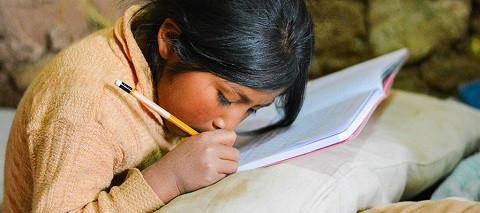
GCED Basic Search Form
Quick Search
현재 위치
뉴스

The COVID-19 health crisis has resulted in school and university closures affecting over 90% of the world’s students. Even more drastic disruptions loom on the horizon, according to an independent International Commission on the Futures of Education appointed by UNESCO Director-General Audrey Azoulay in September 2019.
Even when schools reopen, the emerging economic recession threatens to exacerbate inequalities and could rollback progress made in expanding educational access and improving the quality of learning globally, the commission warned during an online meeting on 9 April.
Chaired by the President of Ethiopia Sahle-Work Zewde, the International Commission for the Futures of education brings together thought leaders from the worlds of politics, academia, civil society, education, and business. The COVID-19 crisis has underscored the importance of the Commission’s mandate to reflect on how knowledge and learning need to be rethought in an increasingly uncertain and fragile world. During its special meeting dedicated to the COVID-19 crisis, the Commission issued a Joint Statement on how education needs to be protected and transformed for our shared future and common humanity.
In her remarks to the Commission, UNESCO Director-General Audrey Azoulay noted that “We now see that online distance learning cannot be the sole solution, as it tends to exacerbate already existing inequalities that are partly levelled in school settings. This will be of interest for this Commission whose task is rethinking the future of education, including appropriate articulation between distance and classroom learning”.
President Sahle-Work said, “At my age, I have seen a multitude of effects caused by various crises. But with the current global pandemic, I am not sure we have drawn the pivotal lessons from the past required to mitigate the ill-effects of the disruptions caused to our lives. COVID-19 does not discriminate and is redefining our reality. We should respond with humility, solidarity and empathy.”
According to the Commission, as humanity looks for ways to transform the world for the better after the worst health crisis in a century, we must rethink social policies, including education, and address long-standing issues of structural inequality, poverty and exclusion. An impending global recession is likely to have drastic consequences for the funding of education and other public services as well as for individuals’ lives and livelihoods. During this time, global commitments to education must be maintained and resources directed to those who have been hardest hit socially, economically and educationally. The Commission urges that crises—in global health and education—be addressed through solidarity, empathy and appreciation for our common humanity.
See Statement by the Futures of Education
URL:
